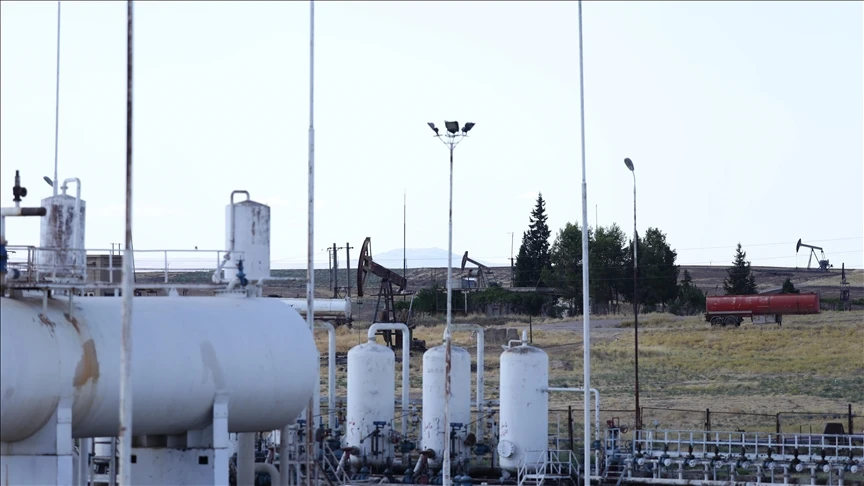Terror group PKK/YPG seizes $2.5B worth of Syrian oil annually
 PKK/YPG extorts Syrians' oil worth 2.5 billion dollars a year, Tel Abyad, June 26, 2024 (AA Photo)
PKK/YPG extorts Syrians' oil worth 2.5 billion dollars a year, Tel Abyad, June 26, 2024 (AA Photo)
In Syria, the PKK/YPG terrorist organization controls over 70% of the country’s oil fields, seizing $2.5 billion worth of oil annually through domestic and international sales.
The largest oil and gas fields under PKK/YPG occupation include the Omar, Izba, Tanak and Koniko fields in Deir Ezzor, as well as the Suwaydiya and Rumeilan fields in Hasakah.
In 2011, before the conflict, Syria produced 386,000 barrels of oil daily, according to the Ministry of Petroleum and Mineral Resources. Currently, the PKK/YPG extracts at least 150,000 barrels of oil daily from the occupied areas.
Due to technical and logistical challenges in oil production, the terrorists transport thousands of barrels of crude oil daily to northern Iraq. Some of the refined oil is returned to the occupied regions, while the remainder is sold illegally in northern Iraq.
Until 2017, the sale and marketing of oil from the occupied fields were managed by a terrorist named Ali Shir. After 2017, these operations were taken over by Shahoz Hasan, a former co-chair of the PKK/YPG and a manager at the Jazira Oil Company.
Hasan, through an intermediary named Fuat Mohammed, known by his codename Abu Dello, sells part of the production via the Simalka, Mahmudiya, and Al-Walid border crossings to northern Iraq.
The PKK sells 30,000 barrels of oil daily at $30 per barrel, earning $900,000 daily, amounting to $328.5 million annually.
The group also smuggles 35,000 barrels daily to regime-controlled areas, earning over $2.45 million daily and more than $894 million annually.
Combined, the terrorist organization earns over $1.2 billion annually from oil sales to the Assad regime and northern Iraq.
The remaining 85,000 barrels of unrefined oil are sold to local dealers and smugglers within the occupied regions at an average of $42 per barrel, generating $3.57 million daily and $1.3 billion annually.
Thus, the PKK/YPG annually seizes $2.5 billion worth of Syrian oil.



